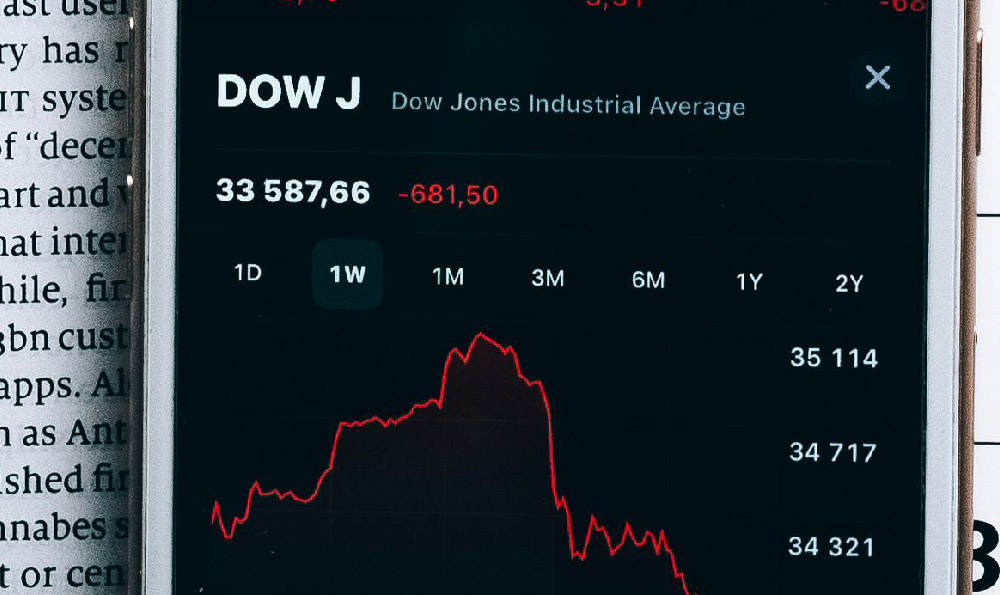Broadcom, a name synonymous with connectivity and infrastructure solutions, has been a powerhouse in the technology sector for years. Determining whether it constitutes a "smart" investment requires a multifaceted analysis, considering its financial performance, market positioning, future growth prospects, and inherent risks. Let's delve into a comprehensive evaluation to assist you in making an informed decision about investing in Broadcom.
Broadcom's financial track record is undeniably impressive. The company consistently delivers strong revenue and earnings growth, fueled by its diversified portfolio of products and services. A significant portion of its revenue stems from its semiconductor solutions, catering to a wide range of industries, including data centers, networking, broadband, wireless, and storage. Its infrastructure software segment also contributes substantially, offering solutions for mainframe, cybersecurity, and automation. This diversification helps mitigate risk and provides a stable revenue stream, even during economic downturns in specific sectors. Furthermore, Broadcom exhibits robust profitability margins, a testament to its operational efficiency and ability to command premium pricing for its specialized offerings. Its disciplined approach to capital allocation, including strategic acquisitions and share buybacks, further enhances shareholder value. Examining key financial metrics, such as revenue growth, earnings per share (EPS), return on equity (ROE), and free cash flow generation, consistently reveals a company performing at the top of its peer group. However, past performance is not indicative of future results, and it's crucial to assess the factors driving its historical success and their sustainability.
The company's market positioning is another critical factor to consider. Broadcom holds leading market share in several key segments, including Wi-Fi chips, broadband access products, and storage connectivity solutions. This dominant position affords it considerable pricing power and influence over industry trends. Its relationships with major original equipment manufacturers (OEMs) and cloud service providers (CSPs) are deeply entrenched, providing a steady stream of business. Moreover, Broadcom actively invests in research and development (R&D) to maintain its technological edge and anticipate future market demands. This proactive approach allows it to stay ahead of the competition and capitalize on emerging opportunities. The company's strategic acquisitions have also played a pivotal role in expanding its market reach and product offerings. By acquiring complementary businesses, Broadcom has been able to strengthen its position in existing markets and enter new ones, diversifying its revenue streams and reducing its reliance on any single industry or customer.

Looking ahead, Broadcom's future growth prospects appear promising, albeit not without challenges. The ongoing digital transformation, characterized by increasing data consumption, the proliferation of connected devices (IoT), and the rise of cloud computing, is driving demand for Broadcom's solutions. The company is well-positioned to benefit from these trends, as its products are essential for enabling high-speed data transmission, secure connectivity, and efficient infrastructure management. The adoption of 5G technology is also expected to be a significant growth catalyst for Broadcom, as its chips are crucial for powering 5G-enabled devices and networks. The increasing demand for artificial intelligence (AI) and machine learning (ML) is creating new opportunities for Broadcom as well, as its products are used in the development and deployment of AI-powered applications. However, competition in the semiconductor industry is fierce, and Broadcom faces challenges from both established players and emerging startups. The company must continue to innovate and adapt to stay ahead of the curve.
Assessing the risks associated with investing in Broadcom is paramount. The semiconductor industry is cyclical, and demand can fluctuate significantly based on economic conditions and industry-specific factors. A slowdown in the global economy or a decline in demand for electronic devices could negatively impact Broadcom's revenue and earnings. Geopolitical tensions and trade disputes also pose a risk to Broadcom, as its supply chain and customer base are globally distributed. Changes in government regulations, such as export controls or tariffs, could disrupt its operations and impact its profitability. Furthermore, the integration of acquired businesses can be challenging, and Broadcom must effectively manage these integrations to realize the full benefits of its acquisitions. Cybersecurity risks are also a growing concern, as Broadcom's products are used in critical infrastructure and are vulnerable to cyberattacks. The company must invest in cybersecurity measures to protect its products and networks from these threats.
Beyond the core business factors, broader market conditions also play a role. Interest rate hikes, inflation, and other macroeconomic factors can influence investor sentiment and impact stock valuations. While Broadcom's strong financial performance and market positioning provide a buffer against these external pressures, they are not immune to them. Conducting thorough due diligence, analyzing macroeconomic trends, and understanding the potential impact on Broadcom's business are essential steps in the investment decision-making process.
Ultimately, deciding whether to invest in Broadcom requires careful consideration of your individual investment goals, risk tolerance, and time horizon. If you are a long-term investor seeking exposure to the growing technology sector and are comfortable with the inherent risks, Broadcom could be a suitable addition to your portfolio. Its strong financial performance, dominant market position, and promising growth prospects make it an attractive investment option. However, it is crucial to remember that no investment is without risk, and diversification is essential to mitigate potential losses. Before making any investment decision, it is advisable to consult with a qualified financial advisor who can help you assess your individual circumstances and develop a personalized investment strategy. They can provide tailored advice based on your specific needs and help you navigate the complexities of the financial markets. Investing in Broadcom, like any investment, should be a well-informed decision based on thorough research and a clear understanding of the potential risks and rewards.












